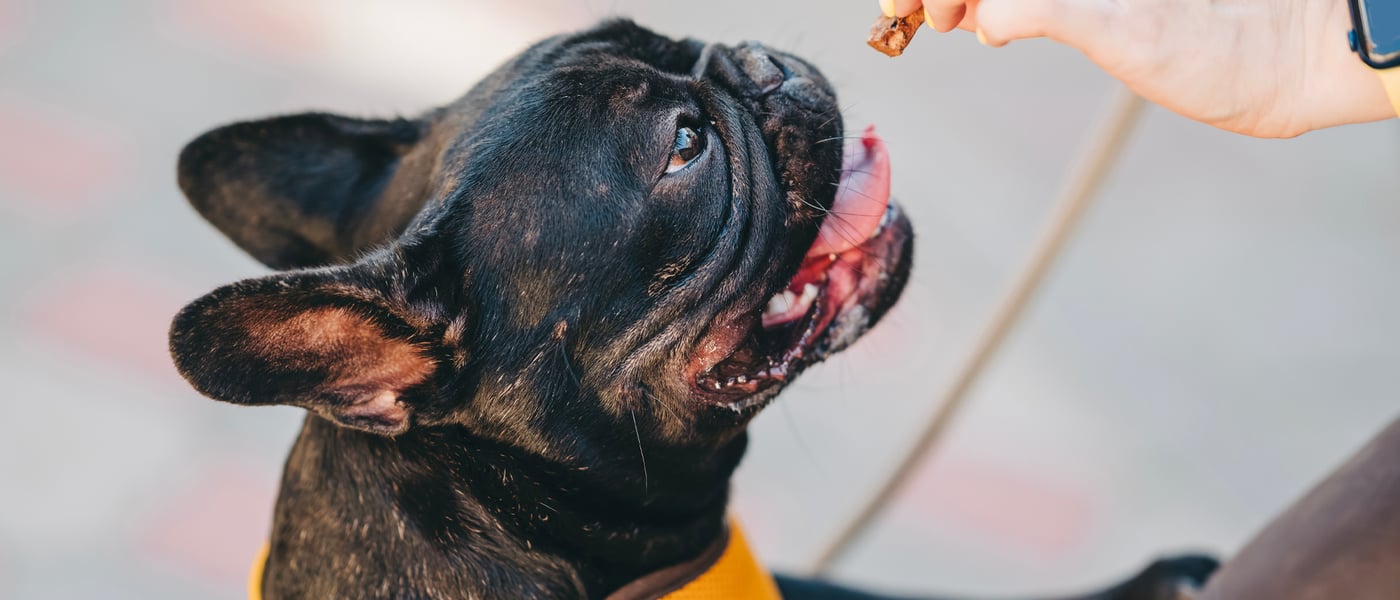


Summary
Index
Introduction
Many dog owners may find themselves wondering whether they can share their love for black pudding with their furry friends. Black pudding, a traditional food made from animal blood, fat, and grains, is a popular ingredient in breakfast dishes. But can dogs eat black pudding? Is it safe for them?
In this article, we will delve into the safety of feeding black pudding to dogs and provide guidance on how to do so responsibly.
It's important to understand the composition of black pudding and the potential risks it may pose to our beloved pets, just as we consider the risks of other human foods like Weetabix or tomatoes. So let's dig in and find out if black pudding is a suitable treat for our four-legged companions!
Unpacking the composition of black pudding



Black pudding is a traditional food with a unique composition. It is typically made from a combination of animal blood, pork fat, and grains such as oats or barley. These ingredients give black pudding its distinct taste and texture.
Along with the primary ingredients, the composition of black pudding may also contain various herbs, spices, and flavour enhancers. This can include ingredients like pepper, which adds a zesty kick to the pudding. However, it is essential to note that some black pudding recipes may include harmful ingredients for dogs, such as spices like garlic or onion powder.
To determine the suitability of black pudding for dogs, it is crucial to understand its composition and the potential presence of harmful ingredients. Different recipes and brands may have variations in their composition, so it is essential to carefully examine the specific ingredients of the black pudding being considered.
Can dogs eat black pudding?



Occasional treat vs regular diet
While dogs can technically eat black pudding, as with other human foods such as strawberries or cucumbers, it is not recommended for regular consumption. Black pudding is high in fat and salt, which can lead to health issues in dogs if consumed in excess. Feeding black pudding as an occasional treat is the safer option.
Understanding the risks of high fat and salt content
The high-fat content in black pudding can contribute to weight gain and increase the risk of pancreatitis in dogs. Excessive salt intake can lead to dehydration, changes in blood pressure, and even sodium poisoning. It's important to consider these potential risks before offering black pudding to your furry friend.
Choosing dog-safe varieties of black pudding
When considering whether to feed black pudding to your dog, it's crucial to choose dog-safe varieties that do not contain harmful ingredients like garlic or onion powder. It's always best to check the ingredient list and consult with a vet to ensure the safety of the black pudding you plan to offer to your dog.
Dog-safe varieties of black pudding
Safe varieties of black pudding for dogs. Ensure that the black pudding you choose contains dog-friendly ingredients and avoid those with harmful additives or spices.
1. Webbox
Ingredients: meat and animal derivatives (60% fresh meat of which 14% pork), derivatives of vegetable origin, cereals, oils and fats, minerals, various sugars.
2. Dragonfly
Ingredients: 70% chicken and 30% pork and Beef
3. Natural Treats
Ingredients: pork blood, lamb fat, wheat, spices
Health concerns when feeding dogs black pudding



Feeding black pudding to dogs can pose several health concerns. It's important to be aware of the potential risks associated with this traditional food and to monitor your dog's consumption accordingly. Here are some health concerns to consider:
1. High-fat content: Black pudding is high in fat, which can lead to weight gain and obesity in dogs. Excessive fat intake can also increase the risk of pancreatitis, a painful inflammation of the pancreas.
2. High salt content: The high salt content in black pudding can be detrimental to your dog's health. It can cause dehydration, alterations in blood pressure, and sodium poisoning. Dogs with certain health conditions, such as kidney disease, are particularly susceptible to the negative effects of salt.
3. Toxic ingredients: Certain spices used in black pudding recipes, such as garlic or onion powder, can be toxic to dogs. These ingredients can cause gastrointestinal upset and even damage to the red blood cells in dogs.
To ensure the well-being of your furry friend, it is advisable to avoid feeding black pudding to dogs on a regular basis. Instead, opt for healthier treat options that are specifically formulated for canine consumption.
Alternative healthy treat options for dogs



When it comes to treating your dog, there are plenty of healthy alternatives to black pudding.
These options not only provide tasty rewards for your furry companion but also contribute to their overall well-being. Whether you're looking for high-value rewards or homemade treats, there are various options to consider.
High-value rewards beyond store-bought treats
If you're looking for high-value rewards for your dog, consider these alternatives to store-bought treats:
Chicken: Cooked chicken breast or shredded chicken can be a delicious and nutritious treat for dogs. It's a great source of lean protein.
Dried sprats: These small, fish-based treats are packed with omega-3 fatty acids, providing a healthy boost for your dog's skin and coat.
Plain cheese: Opt for plain, unseasoned cheese such as cheddar or mozzarella. Dogs often enjoy the taste of cheese as a special treat.
These high-value rewards offer a balance between taste and nutritional value, ensuring your dog receives a healthy and enjoyable treat.
Homemade dog treats incorporating balanced nutrition
If you prefer to make treats for your dog at home, you can ensure a balanced diet with these homemade options:
Pumpkin peanut butter biscuits: Combine pumpkin puree, peanut butter, and whole wheat flour to make delicious and nutritious biscuits. Pumpkin is rich in fibre and vitamins, while peanut butter provides healthy fats and protein.
Carrot apple pupcakes: These pupcakes are made with grated carrots, grated apples, and whole wheat flour. Carrots are a great source of vitamins, and apples provide antioxidants.
Blueberry yogurt frozen treats: Mix blueberries with plain yoghurt and freeze them into bite-sized treats. Blueberries are packed with antioxidants, while yoghurt offers probiotics.
By making treats at home, you have control over the ingredients and can cater to your dog's specific dietary needs. Plus, it's a fun and rewarding experience to bake treats for your beloved companion.
When considering human foods for your dog, it's important to research each item carefully. For instance, you might wonder about other protein sources like corned beef. Learn more about whether dogs can eat corned beef and its potential effects on their health.
Conclusion



In summary, while dogs can technically eat black pudding, it is not recommended for regular consumption. The high fat and salt content of black pudding can pose health risks to dogs if consumed in excess. It is best to feed black pudding as an occasional treat, in small quantities.
This approach mirrors the cautious consideration we give to other human foods like white chocolate, mackerel, and grain products when thinking about a dog's diet.
To ensure your dog's safety, it's important to understand the potential health risks associated with black pudding and choose dog-safe varieties. Look for black pudding brands that do not contain harmful ingredients like garlic or onion powder.
Fortunately, there are plenty of healthier treat options available for dogs. Consider using high-value rewards such as chicken, dried sprats, or plain cheese as alternative treats. You can also explore homemade dog treats that incorporate balanced nutrition, giving you control over the ingredients and catering to your dog's specific dietary needs.
Remember, your dog's health should always be a top priority. It's essential to consult with a vet before introducing any new food into your dog's diet, including black pudding. By making informed choices, you can ensure your furry friend enjoys safe and nutritious treats that contribute to their overall well-being.
FAQs
Can dogs eat black pudding?
Dogs can technically eat black pudding, but it is not recommended for regular consumption due to its high fat and salt content.
Is black pudding safe for dogs?
Feeding black pudding to dogs can pose health concerns due to its high fat and salt content, as well as potential harmful ingredients.
Can dogs have black pudding as an occasional treat?
Feeding black pudding as an occasional treat, in small quantities, is a safer option for dogs.
What are the risks of the high fat and salt content in black pudding for dogs?
The high fat content in black pudding can lead to weight gain and pancreatitis in dogs, while the high salt content can cause dehydration, changes in blood pressure, and sodium poisoning.
How can I choose dog-safe varieties of black pudding?
It's important to check the ingredient list and avoid black pudding recipes or brands that contain harmful ingredients for dogs, such as garlic or onion powder.
What are the health concerns when feeding dogs black pudding?
Health concerns when feeding black pudding to dogs include weight gain, pancreatitis, dehydration, changes in blood pressure, sodium poisoning, and potential toxicity from spices like garlic or onion powder.
What are some alternative healthy treat options for dogs?
There are plenty of healthier treat options for dogs, such as high-value rewards like chicken, dried sprats, and plain cheese. Homemade dog treats can also be a great way to incorporate balanced nutrition into their diet.
Can I give my dog homemade treats instead of black pudding?
Yes, homemade dog treats can be a nutritious alternative to store-bought treats, as you have control over the ingredients and can ensure they meet your dog's specific dietary needs.
Is black pudding recommended as part of a regular diet for dogs?
No, black pudding is not recommended as part of a regular diet for dogs due to its high fat and salt content. It should be given only as an occasional treat, in small quantities.
Want more like this?
Get updates from us with helpful info, advice, answers to frequently asked questions and much more.
Get your quote
Along with our excellent coverage, we offer access to a 24/7 online vet to answer all your sticky questions.





